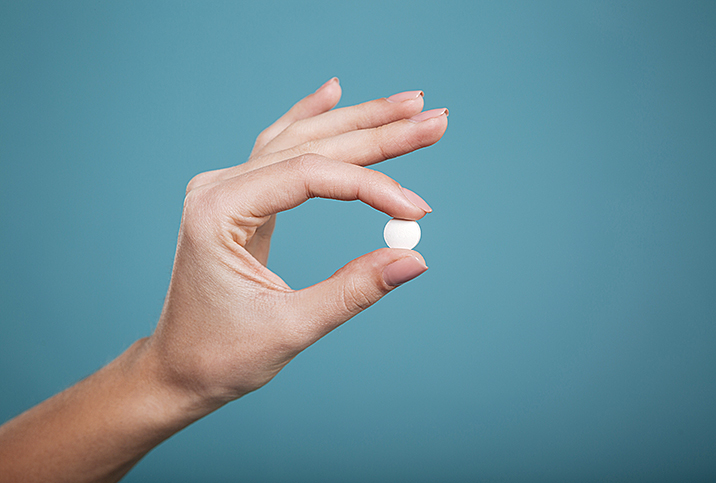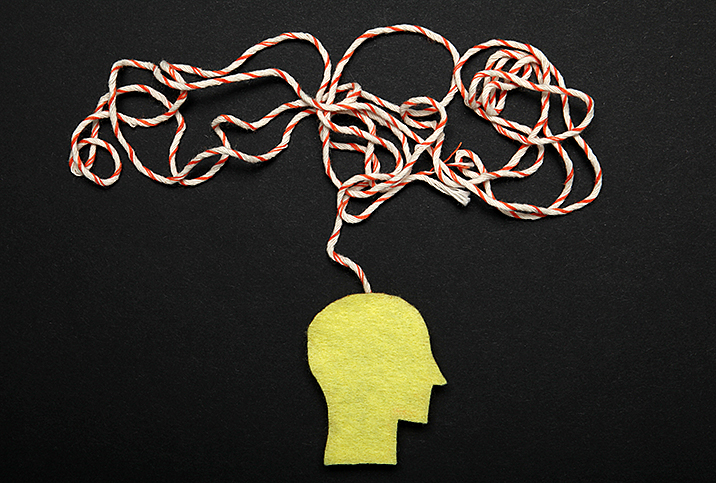Hormone Fluctuations Can Impact Your ADHD

For women who struggle with ADHD, their menstrual cycle can have further effects beyond the usual PMS.
The menstrual cycle, which typically lasts 21 to 35 days, can affect many components of your life, including your sleep, mood, energy, skin and immune system. The fluctuation of sex hormones progesterone and estrogen throughout the cycle can also cause physical and mental changes.
Patricia Quinn, M.D., author of "Understanding Girls With ADHD: How They Feel and Why They Do What They Do," explained how a decrease in estrogen can increase ADHD symptoms and decrease the ability to function.
Unfortunately, Quinn said, women with ADHD clinically report an increase in PMS symptoms involving mood disturbance.
The fluctuation of sex hormones progesterone and estrogen throughout the cycle can also cause physical and mental changes.
"Estrogen plays a role in cognitive function and is one of the essential hormones responsible for controlling the female reproductive system. Neurotransmitters, including serotonin, dopamine and norepinephrine, are all affected when estrogen changes," said Emma Williams, a registered psychologist. "Focus, concentration, mood and memory are all aided by these neurotransmitters."
And it's not just estrogen. Your regular cycle also comes with changing serotonin levels, which have a direct correlation to ADHD. Serotonin levels are lowest in the two weeks before your period, and women with low serotonin levels may experience an increase in ADHD symptoms.
The interaction of hormones and medication
Changing hormones can affect how a stimulant, like ADHD medication, is processed in your body.
When estrogen levels are low, women may suffer irritability, moodiness, difficulty concentrating, fuzzy thinking, forgetfulness and memory issues. Because ADHD is linked to a malfunction in the brain's neurotransmitter systems, women with ADHD may be more sensitive to reduced estrogen levels. They also may notice their ADHD medication is not as effective when estrogen levels are decreased.
If your usual dose of ADHD medication is not working as well when you're menstruating, this can be extra difficult on top of the regular period symptoms.
"When a woman who is used to the positive effects of this stimulant goes through her menstrual cycle, she may start to lose focus again. Not only can the menstrual cycle cause a flare-up in ADHD, but it can also cause anxiety because it can bring up negative feelings about oneself," said Karla Pretorius, M. Psych., a research psychologist who advocates globally for ADHD and autism awareness.
Turn up the dopamine and serotonin
If you notice your ADHD medication is less effective or your ADHD symptoms worsen throughout your cycle, talk to your doctor. They may be able to adjust your medication to treat the problem.
You can also try natural ways to increase the neurotransmitters that fluctuate during your menstrual cycle. To naturally increase serotonin and dopamine, make sure you're getting a good night's sleep, eating properly and exercising.
Since women with ADHD are more sensitive to a decrease in estrogen, which affects serotonin, dopamine and norepinephrine, it's important to track your cycles and inform your doctor about any patterns you're experiencing. Understanding your cycle can give you a better idea of when to expect ADHD flare-ups and when to start taking extra precautions to prevent exacerbating your symptoms.
If you're experiencing brain fog or any other ADHD symptoms around your period, take it easy on yourself and remember: It's not all in your head.


















